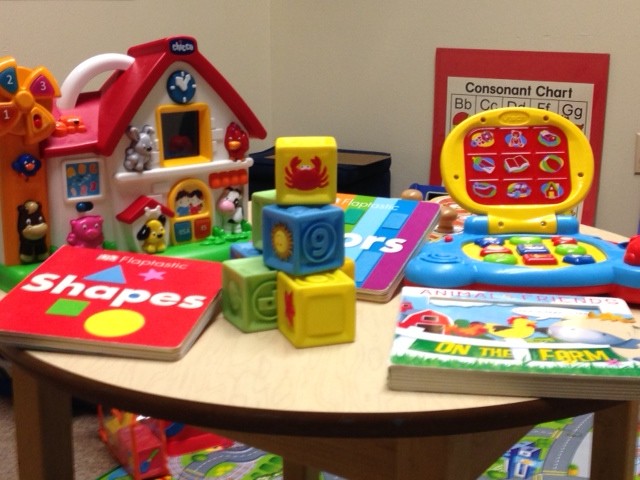
The study, led by Northern Arizona University professor Anna Sosa, suggests that books and traditional toys such as blocks or puzzles are more effective than electronic toys at promoting high quality verbal interactions that are associated with enhanced communication and language skills.
“There is lot of variability in terms of how quickly children develop language, and one of the factors that influences that is their early language environment,” said Sosa, who also serves as director for NAU’s Child Speech and Language Lab.
Sosa explained that one of the most important influences is the responsiveness of the parent during playtime. “We’ve learned that quantity is important but also the quality of language these young children are hearing,” Sosa said.
For the study, researchers listened to 15-minute audio recordings of in-home interactions between parents and infants with three different toy sets: books, traditional toys and electronic toys. The selected toys focused on animal names, color names and shapes. Study participants included 26 pairs of parents and infants ages 10 to 16 months.
“Across the board it was pretty consistent that when the babies were playing with electronic toys, all of the measures were lower. The parents talked less, responded less and used fewer content-specific words,” Sosa explained. The number of times parents used the names of animals, colors and shapes increased when they were playing with traditional toys and more than tripled when they were reading books.
“We found that when we looked at the quality of the interactions and the responsiveness of the parent and the baby, there were no differences in the traditional toys versus books,” Sosa said. “The books definitely did show quantity advantages over the traditional toys, but we have more and more evidence showing that it’s not necessarily just the quantity but the quality, and we saw the same quality interaction with both.”
Sosa said parents are constantly encouraged to read to their babies but this finding suggests that reading books doesn’t need to be forced. “If your child likes playing with blocks just make sure you’re talking about the things on the blocks and using language in the interaction.”
Based on the findings of this study, playing with traditional toys and reading books are recommended activities to promote early language development especially during the precious time with young children that is often limited, Sosa said.
Sosa suggests that there is no harm in giving electronic toys to children but to think of them as simply entertainment. “Even if companies are marketing them as educational, they’re not teaching the babies anything at this time,” she said.



